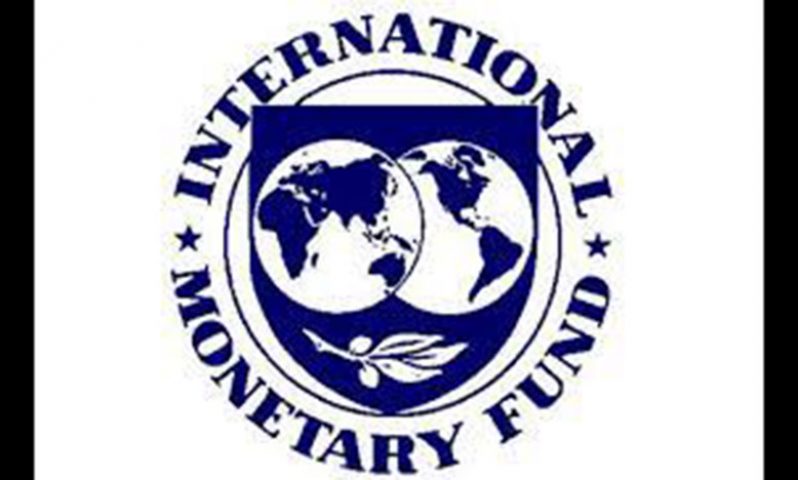— cushion burden of high commodity prices, says bank in latest report
— optimistic that country’s oil resources could fortify economy to absorb shocks, address infrastructure gaps, human development needs
THE International Monetary Fund (IMF) has commended the Government of Guyana for implementing effective policies to cushion the burden of high global commodity prices.
In a report documenting the conclusions of its Article IV Consultation with local authorities, the IMF said: “Staff broadly supported the authorities’ measures to temporarily ease the burden of higher global commodity prices on the most vulnerable groups of society, given the absence of adequate safety nets.”
Aside from sector-specific measures, the government, since being elected to office in 2020, has introduced several measures to put more disposable income into the pockets of Guyanese. From the outset, Value Added Tax (VAT) was removed from water and electricity, a burdensome measure placed on the backs of Guyanese by the former coalition administration.
There has also been the constant increase in old-age pension and public assistance which, as it is, in one year put $2.3 billion and $432 million into the pockets of Guyanese.
Additionally, the PPP/C government reinstated the “Because We Care” cash grant and school uniform cash grant which stand at $30,000 per child in both public and private schools.
Every household in the hinterland will receive a $25,000 one-off cash grant; fisherfolk have started receiving a one-off $150,000 grant; farmers will receive $1 billion in fertiliser support, and there were and are many other initiatives geared at addressing the rising cost of living induced by the COVID-19 pandemic and the war in Ukraine.
The IMF, while supporting those measures, advised local authorities that there needs to be a gradual unwinding of the general subsidies provided through the tax system and moving to full pass-through of international prices to domestic prices since the shock does not appear to be temporary.
This, the international financial institution said, should be done simultaneously with measures to further develop and strengthen a well-targeted social safety net system.
“In addition, a sustainable and feasible increase in capital spending to support the transformation of the Guyanese economy is needed, but within a framework that does not generate macroeconomic imbalances,” the IMF advised.
It was, however, acknowledged that the government has already been taking steps in this direction. Fiscal policy in 2022, according to the IMF, has been appropriately supporting growth, while considerably reducing the fiscal deficit. The government’s milestone $552B 2022 Budget has reduced current expenditures by about one per cent of non-oil GDP compared to 2021, while capital spending has been ramped up to support the non-oil economy.
The year 2022 aside, the IMF also welcomed the broad-based economic recovery in 2021, following a protracted political transition and the pandemic-induced recession in 2020, and the unprecedented high real GDP growth, supported by a steep rise in oil production and accommodative policies.
BUFFERS TO ABSORB SHOCKS
“Directors highlighted that the increasing oil production could help transform the economy, address development needs, and build substantial buffers to absorb shocks,” the IMF said.
Oil production is expected to increase significantly with the coming on stream of two large oilfields during 2023–2026. And, as it is now, Guyana’s commercially recoverable petroleum reserves are the third largest in Latin America and the Caribbean, and one of the highest levels of oil reserves per capita in the world.
The IMF said: “This could help Guyana build up substantial fiscal and external buffers to absorb shocks while addressing infrastructure gaps and human development needs. However, increased dependence on oil revenues will expose the economy to volatility in global oil prices.
“A slowing global economy and the repercussions from the war in Ukraine could also adversely affect non-oil exports. On the other hand, higher global oil prices and additional gas and oil discoveries could significantly improve Guyana’s long-term economic prospects.”
Considering the potential challenges related to volatility in global oil prices and effective management of natural resources, the IMF highlighted the need for continued prudent policies and structural reforms, assisted by technical assistance, to avoid the build-up of macroeconomic vulnerabilities, ensure inclusive growth and intergenerational equity, as well as address structural weaknesses and climate challenges.
The resilience of Guyana’s economy, particularly its non-oil sectors, and the prudent macroeconomic management that allowed the country to not just withstand global shocks, but also perform above average economically, were cited as clear evidence of the nation’s progressive nature and its avoidance of the Dutch Disease, more commonly referred to as the natural resource curse.
Using empirical and factual evidence regarding Guyana’s economic position, Executive Director of the Georgetown Chamber of Commerce and Industry (GCCI), Richard Rambarran and Financial Analyst Joel Bhagwandin, practically schooled the political opposition, which claimed recently that there are signs, locally, of the Dutch Disease.
In short, according to the International Monetary Fund (IMF), the Dutch Disease refers to the detrimental consequences of a sudden boom in a country’s economy.
“…the first half of this year was affected by the pandemic, and the war between Russia and Ukraine… what that did was create adverse economic conditions, and if you have an economy still experiencing positive rates of economic growth in a global context, where economic prospects are dampened, then you have an economy, which in my view, speaks volumes to macroeconomic management,” economist and Executive Director of the Georgetown Chamber of Commerce and Industry (GCCI), Richard Rambarran, had said.
He went a step further in commending the government for containing inflation to less than the global average, which is hovering around five-six per cent. There have been reports of countries recording inflation of up to nine-10 per cent, so, in Rambarran’s view, Guyana’s performance is evidence of what prudent macroeconomic management looks like.








.png)







